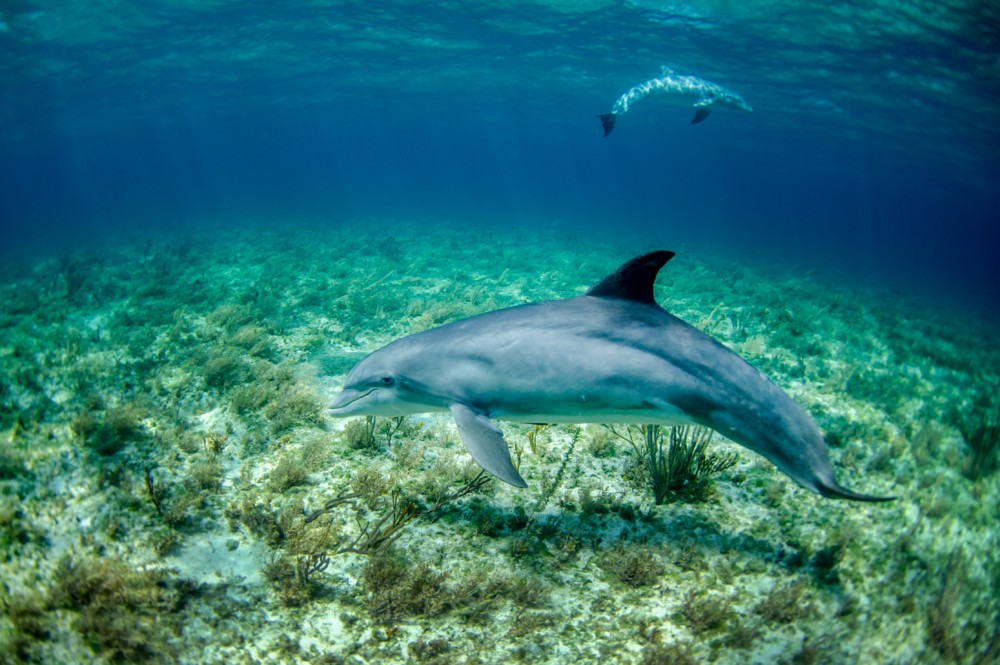
Airbnb, TripAdvisor, Expedia and other world leading travel companies have been ranked for their commitment to animal welfare, in the first of its kind study by global animal welfare nonprofit organization, World Animal Protection
The report, Tracking the Travel Industry exposes the companies that are negligent towards animal cruelty in the tours and excursions they sell, and those that are winning for wildlife, such as Airbnb, which scored the highest amongst its competitors.
Elephants rides, tiger cubs used as props for selfies, dolphins used as surf boards and other circus-style performances, have all been big business for travel companies, allowing them to rake in profits from tourists, unaware of the cruelty happening behind the scenes. However, the wild animals exploited in these demeaning activities live a life of misery and suffering.
Tourism has ground to a complete standstill as the world grapples with the COVID-19 pandemic. World Animal Protection is encouraging the travel industry to seize this opportunity – to come back stronger, more ethical and resilient by protecting wild animals. Global tourist polls have also shown there’s great customer appetite for it, as 85% of respondents interviewed believe travel companies should avoid activities that involve wild animals suffering[i].
The report, undertaken by the University of Surrey, and commissioned by World Animal Protection has independently analyzed the public commitments travel companies have – and haven’t made, and ranked them in order.
Companies were scored across four key areas:
- Commitment: Availability and quality of published animal welfare policies and how applicable they are to all their brands.
- Targets and performance: Availability and scope of published time bound targets and reports on progress towards meeting animal welfare commitments.
- Changing industry supply: Availability and quality of engagement with suppliers and the overall industry, to implement wildlife-friendly changes.
- Changing consumer demand: Availability and quality of educational animal welfare content and tools to empower consumers to make wildlife-friendly travel choices.
The companies assessed were Airbnb, Booking.com, The Travel Corporation, TripAdvisor, Viator, TUI.co.uk, DER Touristik, Expedia, Flight Centre, AttractionTickets.com, Trip.com, GetYourGuide, Klook, and Musement and the key findings from the Tracking the Travel Industry report reveal that:
Airbnb is ranked the highest by scoring full points when it comes to prohibiting performances, fights and races for all wild animals. They also scored highly regarding defining a clear scope for their policy, explicitly making the policy applicable to all suppliers, products and brands. Airbnb worked directly with World Animal Protection to create their animal welfare policy to ensure it was developed to the highest standards. The Travel Corporation, TripAdvisor, Booking.com and Viator, also scored highly.
Major companies such as Expedia and Flight Centre have significant improvements to make, ranking as ‘poor’ and ‘very poor’ respectively. GetYourGuide, Klook and Musement are ‘failing’ and at the bottom of the ranking and must take immediate action to increase their commitment to animal welfare or be branded as the unethical choice for tourists Audrey Mealia, Global Head of Wildlife at World Animal Protection says:
“People are beginning to rethink travel and the ‘new normal’ as we live through the pandemic. In the case of wildlife tourism, we know that people still want to see wild animals – but not at the cost of cruelty.
“Global companies such as Airbnb are joining us in the fight against animal cruelty and trailblazing the way. Right now, the travel industry has a unique chance to change the world for good and put an end to cruel wildlife attractions.
“Tourists are becoming increasingly concerned about animal cruelty, and we will continue to be a voice for wildlife, piling the pressure on travel companies to make real and lasting change.”
World Animal Protection is calling on everyone, from travelers, to tour operators, to take responsibility and put an end to the exploitation of wild animals forever – less demand will mean fewer wild animals suffer.
The charity is also calling on G20 leaders to enforce a global wildlife trade ban to eliminate the threats of future pandemics to our health and economies.
To find out more, visit: www.worldanimalprotection.us
Read the full report here.
Sign the petition to ban the global wildlife trade here

